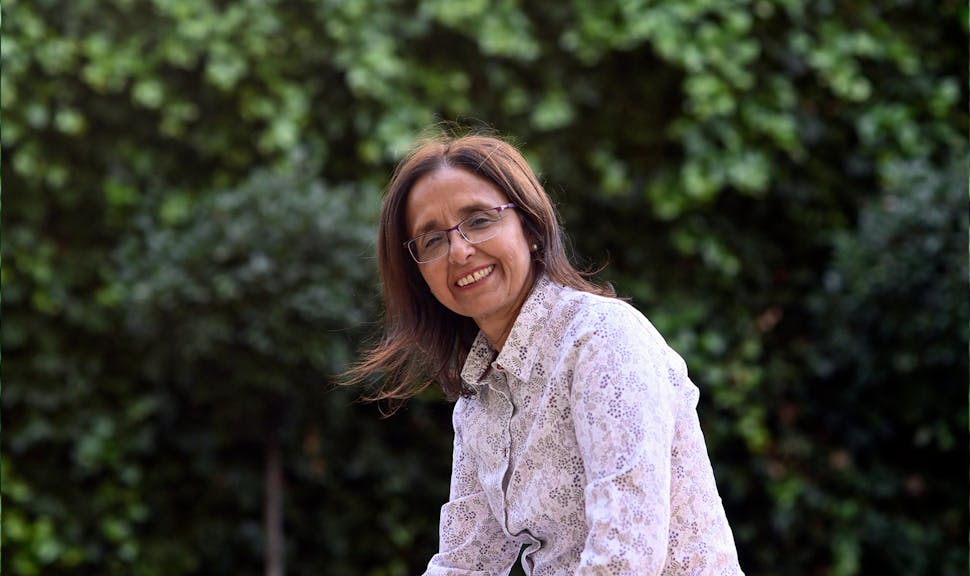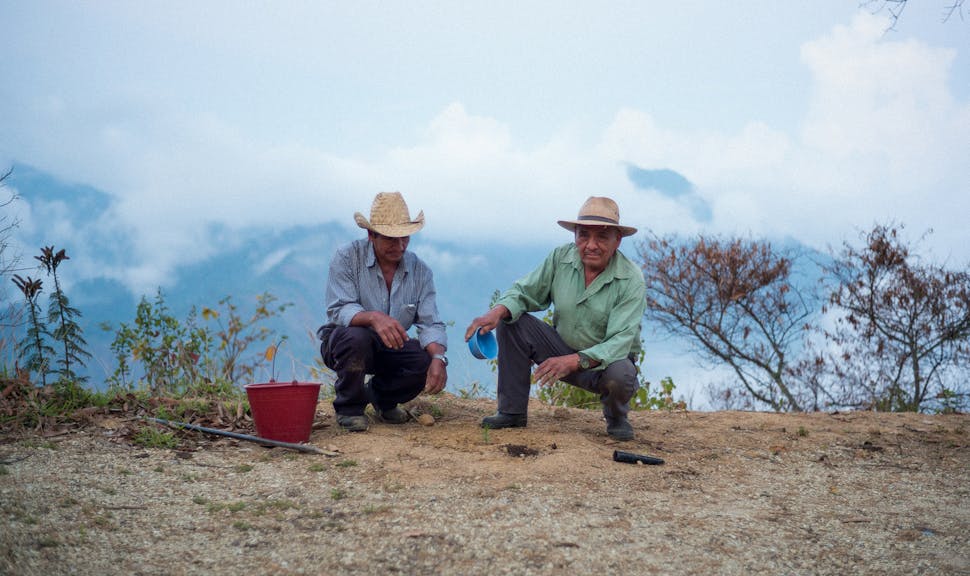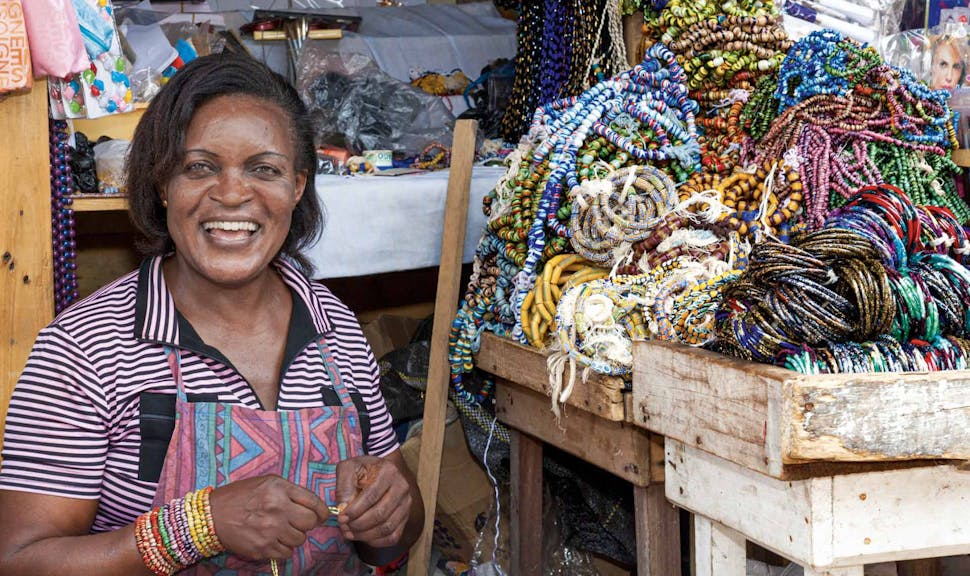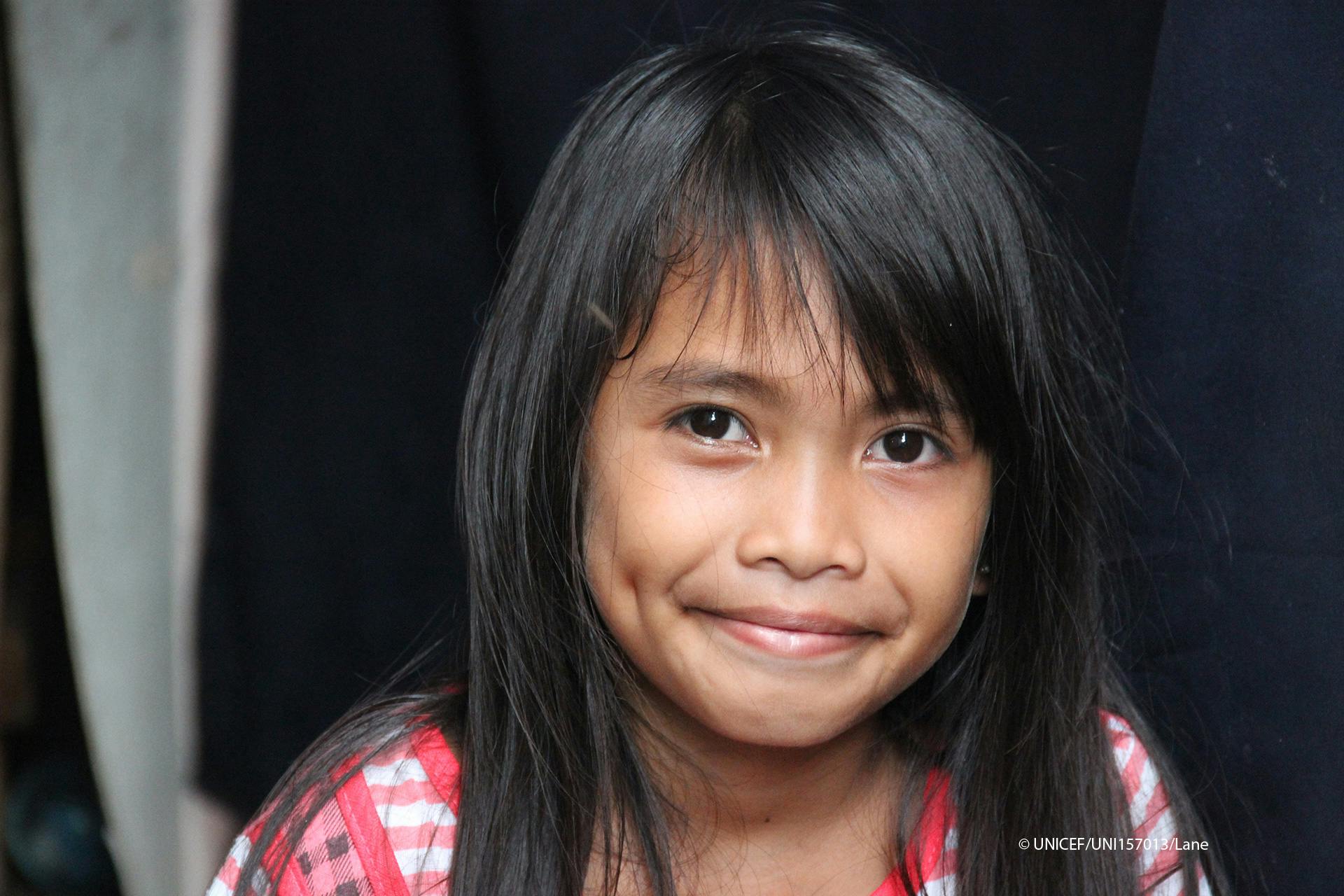

Maria Evelyn CarpioNutrition Specialist with UNICEF Philippines
March 4, 2021
“I believe that good nutrition is key to fighting childhood obesity and it starts at home.”
Over the past few years, childhood obesity and overweight rates in the Philippines have increased. In 2020, UNICEF Philippines launched a childhood obesity prevention project, including pregnant mothers and caregivers. Despite the Covid-19 pandemic, Maria Evelyn and UNICEF managed to achieve a lot in the fight against obesity and excessive weight last year.
3 minutes
I’m Maria Evelyn Carpio, a Nutrition Specialist at UNICEF Philippines. It’s been my dream to work with UNICEF* since I started studying nutrition at university. Having worked in the government for 18 years, I decided to join UNICEF because I wanted to dedicate my work to contributing to improving the nutrition of women and children. I’ve been with UNICEF for 10 years now and I’m proud to be part of a team that is driven by care, respect, integrity, trust, and accountability in caring for mothers, children, and young people.
The serious problem of obesity among children and adolescents calls for the strict implementation of the Philippines’ policies on mother and child nutrition, including the First 1,000 Days, the Milk Code, and taxation on sugary foods and beverages. A nationwide study on the country’s nutrition status revealed that almost 10 per cent of young people aged 10 to 19 are suffering from obesity. Recently, we found out that the number of overweight Filipino adolescents has tripled in the last 15 years.
We aim to prevent excessive weight and obesity among preschoolers, school children, adolescents, and adults by advocating for and implementing policies on healthy eating, management of excessive weight and obesity, and promoting conducive environments for an active lifestyle.
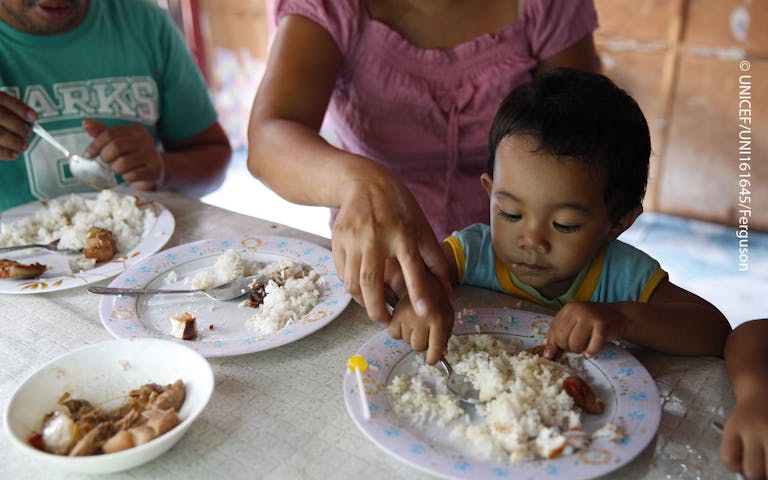
Why is this project focusing on pregnant women and children?
We believe that proper health and nutrition is critically important during the first 1,000 days of life – before the mother conceives, during her pregnancy, and up to the child’s second birthday. To support this crucial period, UNICEF has been pushing for policies to address prenatal and maternal nutrition and care; the protection, promotion and support of breastfeeding, including exclusive breastfeeding during the first six months; and the appropriate complementary feeding in the first two years of life.
Furthermore, we promote healthy diets in schools, public institutions and workplaces. We’ve also been advocating for measures to improve food security and ensure access to healthy foods by all individuals and families.
I believe that good nutrition starts at home. With readily available foods that are cheap, ready-to-eat, and unhealthy in the market, families should be well informed so that pregnant women and children can access healthy options.
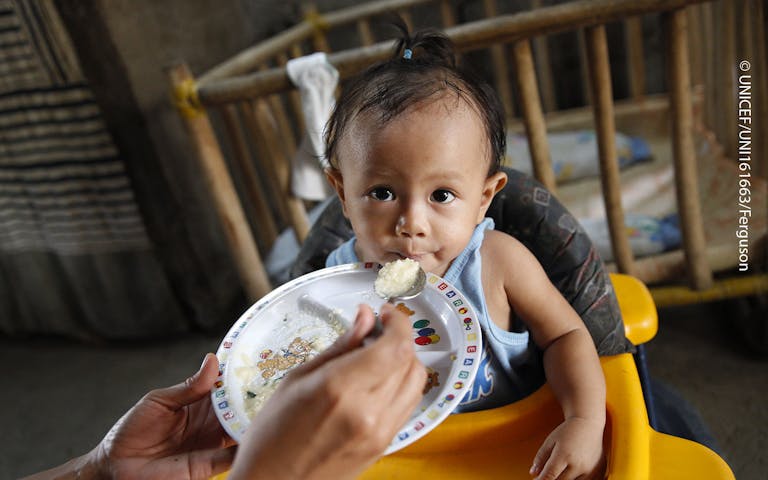
What are the challenges you face every day? And what were the challenges of 2020?
The COVID-19 pandemic has brought numerous challenges that limited, or totally restricted, face-to-face contact with mothers, which is vital in supporting the proper feeding of infants and young children. Although we delivered our support online, we were not able to reach as many mothers and caregivers as we planned because Internet connectivity in the country is not optimal. Due to restrictions still in place, we continue to support the government to deliver online training and counseling on basic health and nutrition.
Despite the Covid-19, pandemic, what did you achieve in 2020?
Despite the pandemic, we continued to work with the government and other civil society organizations to reach mothers and caregivers of young children. Furthermore, we conducted an analysis of obesity and excessive weight to gather data on the risk factors that contribute to childhood nutrition, identify supportive policies and programs in the country, and identify gaps and limitations of existing policies and programmes to aid the government in implementation. Following this successful study, we recently initiated a study on healthy food environments to identify the factors affecting the dietary intake of Filipino children and adolescents.
On March 4, UNICEF will be leading the observance of World Obesity Day to promote awareness about the issue of excessive weight and obesity in the Philippines.
As part of this initiative, we’ll be holding a three-part online forum to help people understand that this problem is real and that our children are suffering greatly from it. More importantly, we’ll be using this event to advocate for government action to address the problem.
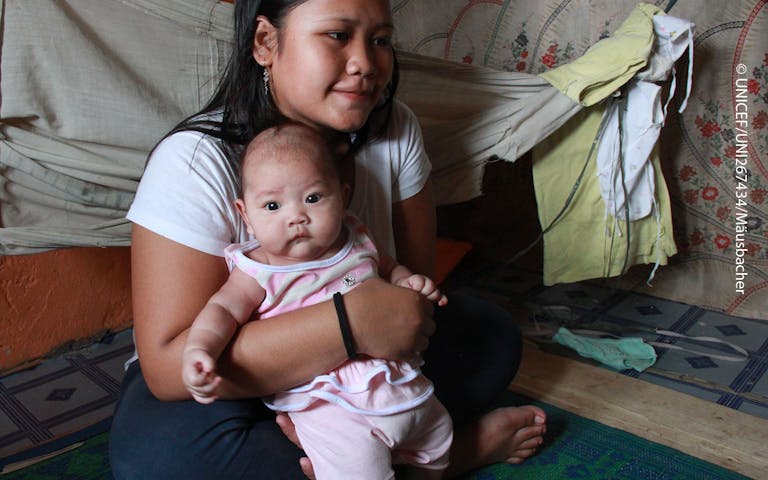
AXA, through its engagement with UNICEF, is supporting the Overweight and Obesity Management Prevention Program in the Philippines, which not only promotes healthy eating environments and lifestyles but also supports those who are already overweight and obese to help them manage their health. UNICEF Philippines works closely with the government to make sure that the program reaches as many children and adolescents as possible.
